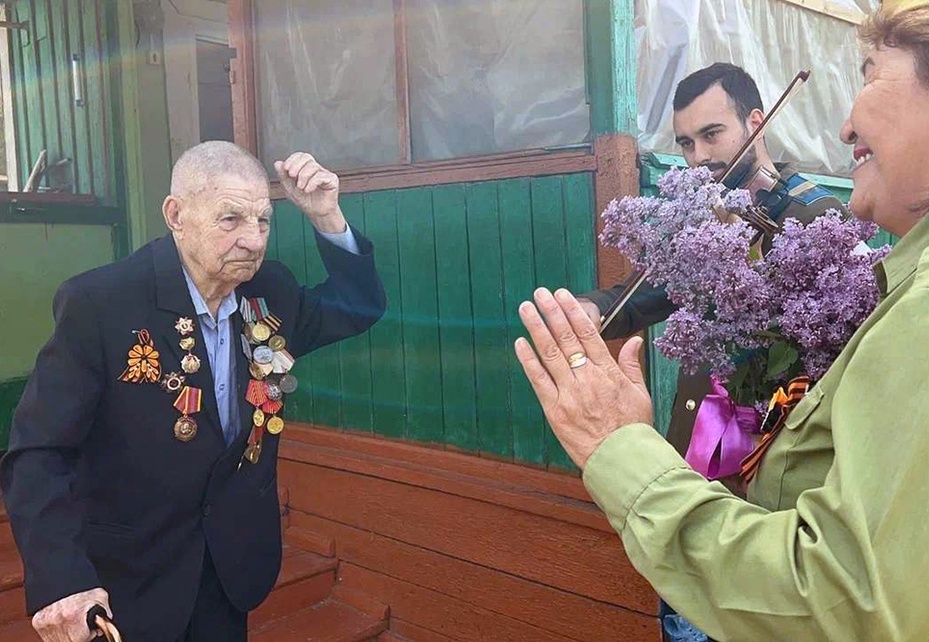
Time bends like river reeds around Arkady Stepanov's century-long story—a tapestry woven with bullet holes, fish brine, and the ticking of Leonid Brezhnev's personal wristwatch. This April, the man who outlived empires celebrated his 100th birthday in Volodarsky village, where the Volga whispers wartime secrets to the Caspian wind.
War stole his adolescence in 1941, replacing schoolbooks with munitions work at a fish cannery. "The factory floor became my classroom," recalled Stepanov, his voice still carrying the metallic tang of those years. By 18, he'd traded filleting knives for a machine gun in the 250th Guards Regiment, where the earth trembled like a living thing during the Battle of Kursk.
His left arm still remembers August 1943 best—the searing kiss of a Nazi bullet that left bone fragments scattered like shrapnel across Kharachevo's black soil. "That surgeon in Kotelniki worked miracles," he'd say, flexing his claw-like hand that could no longer button a shirt but still taught grandchildren to salt carp perfectly.
The Volodarsky fish plant became his second front. Rising from salt-stained laborer to deputy director, he turned the facility into a Soviet showpiece—so exemplary that Brezhnev himself pressed a gold-plated watch into his palm during a 1970s inspection tour. "Better than any medal," chuckled Stepanov, though his treasure chest held both:
Even at 99, he'd dance to balalaika tunes during Victory Day concerts outside his green-fenced home, the same spot where schoolchildren once gathered to touch living history. This May, the familiar ritual took a different turn—three generations of Stepanovs stood shoulder-to-shoulder again, but now around a fresh grave two days before the anniversary he'd waited for like spring thaw.
The old soldier's final victory? A legacy measured not in years but in the laughter of three great-grandchildren who'll grow up knowing the weight of Brezhnev's watch and the lightness of a man who could still waltz with ghosts.

















